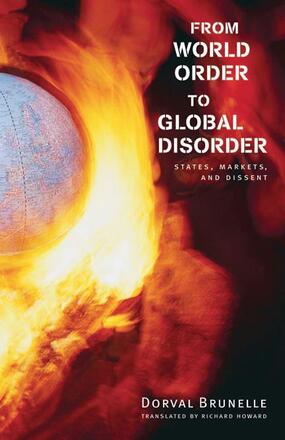
Description
Anti-globalization activism world-wide attests to the tensions
between globalization and civil society. To better understand this
fraught relationship, Dorval Brunelle compares two social orders
separated by a half-century. The post-World War II order entailed a
broad vision uniting three complementary objectives – security,
justice, and welfare – which were entrusted to a network of
international and national institutions. In contrast, globalization,
with wealth as its only objective, is undermining and overhauling the
values and institutions of the previous order, including the United
Nations and the welfare state.
From World Order to Global Disorder demonstrates the
profound effect of globalization on relations between the state, civil
society, and markets, as well as on collective and individual rights.
As neo-liberalism evolves into globalization, governments are eschewing
their role as public guardians and are instead bartering the very
assets and resources their citizens’ labour and activism created
and preserved. However, no constitution makes governments owners of
collective assets: governments are merely trustees. In this context,
the world’s citizens have a tremendous task before them: in the
wake of the welfare state, their social forums are indispensable in the
quest for a more just and equitable world.